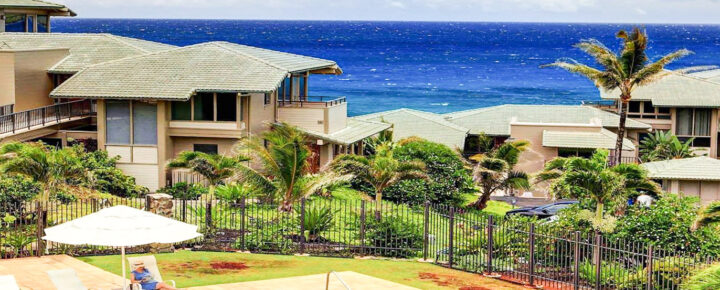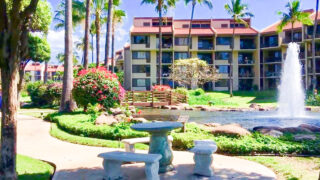The plan to limit Maui vacation rentals is, without a doubt, a complex one mired in controversy. A new voice to the discussion comes from an op-ed by the non-profit Grassroot Institute of Hawaii. They say the path to enacting this ordinance is riddled with significant potential legal challenges and unexpected economic repercussions. The institute suggests that the proposal might not even actually assist the people it intends to, which are local Maui residents.
Instead, it could inadvertently shift these Maui vacation rentals into the hands of even wealthier individuals who buy them for their private use. This could result in “potential” affordable housing becoming high-priced long-term rentals.
The likelihood of these expensive vacation rentals dropping in value to the point of being accessible to residents has been widely doubted, including by the Grassroot Institute of Hawaii.
“The focus should be on making it easier to build homes, rather than penalizing people who already have them.”
Joe Kent, executive vice president of the Grassroot Institute of Hawaiʻi
Maui vacation rental legal challenges abound.
These are set to focus on issues of property rights and the requirement for just compensation. Challenges of this type could easily drag on for years, and include suits in both state and federal courts. It is likely to commence with an injunction being sought soon following approval.
Legal issues and the loss of vacation rentals could have a significant deleterious impact on Maui’s economy. The economic concerns are anything but minor; Maui vacation rentals contribute substantially to the island’s tax base.
Reducing the number of active TVRs by such a large number will likely lead to a shortfall in the county coffers, which could then snowball into cuts in needed public services or an increase in other taxes.
Position of Maui mayor on proposed ban.
Mayor Bissen said recently, “These were originally built for housing, and became short-term rentals. So to try to return them to their original state, especially with our need now, I think is proper, it’s appropriate. We wouldn’t be doing it if we didn’t think so. But it’s not because we thought it’s going to be easy.”
Our perspective is that Governor Green endorsed this initiative, deftly delegating responsibility to the counties while enhancing his own standing. Following suit, the mayor is employing a similar self-aggrandizing strategy.
Global vacation rental tensions lead to local Hawaii actions.
The palpable tension between the need for residential housing and the profitability of short-term rentals has prompted vacation destinations to reevaluate policies. Examples we’ve referred to previously include places like South Lake Tahoe and Florence, which have already implemented strict regulations curbing the proliferation of vacation rentals, driven by local demands to preserve community integriity.
We have been covering the shifts in Hawaii travel and tourism since 2008. In our minds, this proposed ban is one of the most significant regulatory changes we’ve witnessed in all these years. It touches on a myriad of potent issue, legal, economic, and social. The changes afoot will in part define the future of Hawaii tourism as well as living on Maui and in Hawaii.
Beat of Hawaii
Maui on the brink of a historic regulatory change.
More than 7,000 Hawaii vacation rentals quickly phased out. This proposal, initiated by Maui Mayor Richard Bissen and County Council member Keani Fernandez-Rawlins, seeks to convert these short-term Maui vacation rentals back into long-term housing stock for residents. This push comes as a result of a very real housing shortage that was exacerbated by the Lahaina fire last year.
The urgency of this housing crisis was highlighted over a period of months by Governor Josh Green, prior to the approved of a new state law that has given counties the authority to regulate short-term rentals or even eliminate them.
The properties targeted by this proposed ban are primarily those listed on the so-called Minatoya List, which we have previously published. That includes “apartment districts” that have been operated legally as vacation rentals for the past thirty-five years.
The vacation rentals in question are in 104 complexes that were built before 1989, as shown on the list. They are also referred to as “Apartment District Properties Allowed to be Used for Short-Term Occupancy.” These were grandfathered in as short-term rentals in 2001, which was List, named after county attorney Richard K. Minatoya who in 2001 wrote the opinion that grandfathered them in for short-term use. This list was codified in 2014 as Ordinance No. 4167.
Maui Ordinance No. 4167, passed in 2014, (attached below for your review) amended local codes to clarify and continue the allowance of transient vacation rentals (TVRs) in the “Apartment District.” It reaffirmed that buildings with valid permits prior to April 20, 1989, can operate as TVRs.
If the proposed new ordinance is enacted, its mandates will take effect July 1, 2025, for the 2,200 TVR units on Maui’s west side, and on Jan. 1, 2026, for the rest of the units, located mainly along Maui’s Kīhei-Wailea coast.
We will continue to monitor this situation closely, with further updates and analysis as the situationdevelops. We encourage you to share your views on this critical issue, as the future of Hawaii tourism and Hawaii housing is in the balance.
Image: Facebook. Kapalua Bay Villas, included on Minatoya list. Hat tip to Susan H for suggesting this article.
Ord-4167_201412161457120922Get Breaking Hawaii Travel News







I live in Kihei. The Kihei economy depends on visitors. If you take away the condos where visitors stay, you kill the local economy which translates into Job Loss. So, it doesn’t matter how affordable the housing is, it’s not affordable if you don’t have any job!! It’s a dumb plan.
Hopefully the law will get laughed out of court in 10 minutes.
Do owners of these vacation rentals Have to rent to citizens of Maui or can they leave them empty? For instance, as personal use for owners. If they chose to leave them empty, isn’t that going to hurt the tourism economy?
All the well-meaning remarks and sincere conjecture aside, thr real decision as to what “magic bullet” will solve this housing availability and affordability crisis will in the end be made by the housing marketplace unless all parties lead the dynamics of real estate, begin seriously to work together and above all —- listen and shut up. Or as Judge Judy tells it, our Lord intentionally gave all of us two ears but only one mouth for a reason! Jim E
Given the jones act, that stops shipping from Ex-US to Hawaii,
Hawaii has only limited exploitable resources, once water and labor rates make sugar and pineapple to expensive to farm.
Cost for everything is just going to be higher in Hawaii.
No legal band aids will help.
Old rich retired will replace the locals. Hawaii would have to go full “socialism” with an 50% top state tax rate to change this, and that won’t work either.
Sadly, this not-too-distant scenario will likely be the reality of Hawaii’s future. Locals will be forced to compete with wealthy non-islanders for resources including housing. Most locals won’t stand a chance.